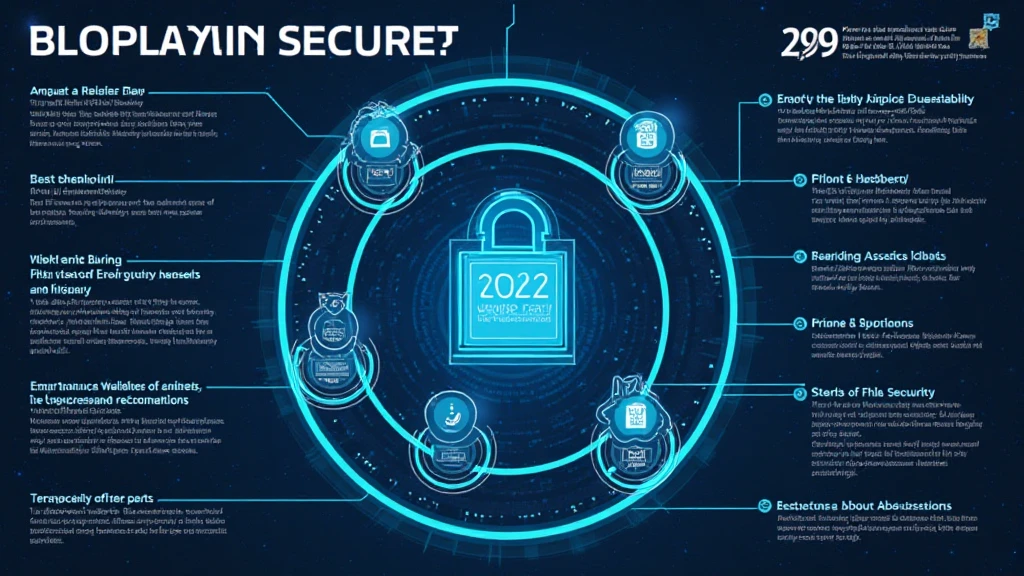2025 Blockchain Security Standards: A Comprehensive Guide for Digital Asset Protection
As the digital asset landscape continues to evolve, the need for robust security standards becomes increasingly critical. In 2024 alone, the DeFi sector lost approximately $4.1 billion to hacks, prompting a reevaluation of security protocols across the blockchain ecosystem. This article delves deep into the essential blockchain security standards that will shape 2025, offering valuable insights for both seasoned and novice traders.
Understanding Blockchain Security
Think of the blockchain as a secured vault for digital assets. Just as a traditional bank employs strict measures to protect its customers’ funds, the blockchain employs various security measures to ensure the integrity and confidentiality of transactions. But what exactly does blockchain security entail?
- Decentralization: Unlike centralized systems, blockchains are distributed across numerous nodes, making it challenging for cybercriminals to compromise the network.
- Encryption: Cryptographic techniques are utilized to secure data and ensure that only authorized parties can access sensitive information.
- Consensus Mechanisms: These protocols validate transactions and maintain the integrity of the blockchain.
Key Vulnerabilities in Blockchain
Despite its advantages, blockchain technology is not immune to vulnerabilities. Here are some critical issues to be aware of:

- Consensus Mechanism Vulnerabilities: Different consensus mechanisms have their unique risks. For instance, Proof of Work systems are susceptible to 51% attacks.
- Smart Contract Bugs: Faulty code in smart contracts can lead to significant losses. Learning how to audit smart contracts is crucial.
- Phishing Attacks: Users are often tricked into revealing private keys through deceptive links and communications.
The Role of Blockchain Standards in Conflict Resolution
As the blockchain ecosystem grows, the need for standardization becomes apparent. International bodies and organizations are working tirelessly to establish frameworks for blockchain security. For instance, the International Organization for Standardization (ISO) is developing a series of standards aimed at promoting best practices.
A clear set of standards can guide developers in creating secure applications and help users make informed security decisions. Would implementing these standards significantly reduce security breaches? Yes, recent studies indicate that organizations adhering to standards see a reduction in breaches by as much as 30%.
Market Trends: Growth of Blockchain in Vietnam
Vietnam is witnessing a remarkable surge in blockchain adoption. The growth rate of blockchain users in Vietnam has skyrocketed to approximately 32% within the last year. This increase highlights the importance of establishing robust security practices tailored to the local context. A deeper understanding of tiêu chuẩn an ninh blockchain among Vietnamese users will mitigate risks associated with emerging threats.
Implementing Blockchain Security across Platforms
Here are actionable steps that businesses can adopt to enhance their blockchain security:
- Conduct Regular Audits: Utilize external audit services to evaluate security protocols and identify vulnerabilities.
- Invest in Robust Wallet Security: Leveraging hardware wallets like Ledger Nano X can reduce hacks by up to 70% compared to software wallets.
- Educate Users: Inform users about potential phishing scams and encourage vigilance in protecting private keys.
Future of Blockchain Security
Looking towards 2025, the influence of artificial intelligence and machine learning on blockchain security cannot be overstated. These technologies will play a pivotal role in detecting suspicious activities and preventing breaches. The combination of AI with existing blockchain security measures could offer unprecedented levels of protection.
As the landscape evolves, continuous education and adaptation to emerging threats will remain vital. For example, consider subscribing to updates from reputable platforms like hibt.com that provide ongoing insights into potential vulnerabilities.
Conclusion: Safeguarding Your Digital Future
Embracing robust blockchain security standards is crucial for the protection of digital assets. By understanding vulnerabilities, implementing recommended practices, and adopting emerging technologies, individuals and organizations alike can navigate the future of cryptocurrency trading with confidence. As we stand on the brink of a new era in blockchain technology, keeping pace with these evolving standards is not just beneficial; it is vital.
Never underestimate the power of a proactive approach to security. Stay informed, stay secure, and prepare for the challenges of tomorrow. For more resources and expert advice, visit cryptotradershows.
About the Author
Dr. John Anderson is a recognized blockchain consultant with over a decade of experience in the technology sector. He has published more than 20 papers on blockchain systems and security protocols and has led numerous high-profile audits of prominent cryptocurrency projects.




